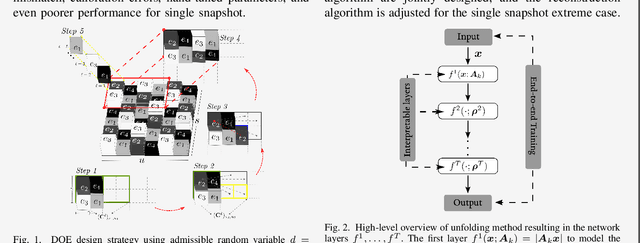Unfolding-Aided Bootstrapped Phase Retrieval in Optical Imaging
Paper and Code
Mar 03, 2022



Phase retrieval in optical imaging refers to the recovery of a complex signal from phaseless data acquired in the form of its diffraction patterns. These patterns are acquired through a system with a coherent light source that employs a diffractive optical element (DOE) to modulate the scene resulting in coded diffraction patterns at the sensor. Recently, the hybrid approach of model-driven network or deep unfolding has emerged as an effective alternative because it allows for bounding the complexity of phase retrieval algorithms while also retaining their efficacy. Additionally, such hybrid approaches have shown promise in improving the design of DOEs that follow theoretical uniqueness conditions. There are opportunities to exploit novel experimental setups and resolve even more complex DOE phase retrieval applications. This paper presents an overview of algorithms and applications of deep unfolding for bootstrapped - regardless of near, middle, and far zones - phase retrieval.
 Add to Chrome
Add to Chrome Add to Firefox
Add to Firefox Add to Edge
Add to Edge